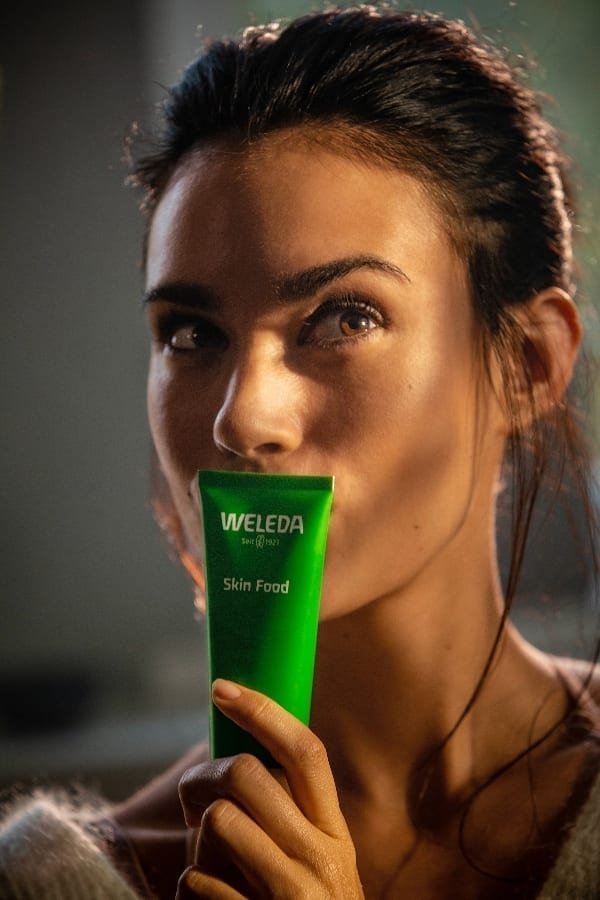This article first appeared in our Restoration Revolution issue of MyGreenPod Magazine, distributed with The Guardian on 06 Sept 2019. Click here to subscribe to our digital edition and get each issue delivered straight to your inbox
Last year, natural beauty officially went mainstream. Sales of certified organic and natural beauty products hit £86.5m in the UK as the sector experienced its eighth consecutive year of growth.
The shift to cleaner beauty products isn’t just down to the Attenborough effect; granted we may have a clearer grasp of the harm toxic chemicals do to our skin and planet, but natural products are also more versatile and effective than ever before.
Miraculously, natural products can even perk up skin that’s been battered by air pollution or suffering from the rising prevalence of sensitivities – hallmarks of the generations inheriting a polluted planet.
EXPERTS GO CLEAN
Beauty experts and makeup artists, too, are ditching quick chemical fixes in favour of products that help to repair and nourish the skin. Out go the synthetic polymers – ‘liquid plastics’ that lacquer your face with a suffocating mask – and in come the plants that make your skin look and feel its best.
‘I love to use green beauty products because they harness the power of plants, and these have a real synergy with our skin’, explains makeup artist Lou Dartford. ‘Choosing skincare that is packed full of quality organic and natural ingredients means that skin gets the nutrition it needs but also knows how to use it – as opposed to cheap synthetic ingredients that the skin simply doesn’t recognise.’
THE MODEL ZONE
For 11 years Weleda has sponsored The Model Zone at London Fashion Week (LFW), which takes place 13-17 September 2019.
Tucked away from the media glare, this relaxing retreat provides a haven for models: they can unwind, rehydrate, eat healthy food, take off their makeup and be pampered with organic skincare. Outside The Model Zone, LFW makeup artists are also increasingly choosing organic skincare to prep models’ often sensitive skin for catwalk shows and presentations.
BACKSTAGE BEAUTY HEROES
The iconic Weleda Skin Food, which is perhaps the beauty industry’s worst-kept secret, is a go-to product backstage; it’s the perfect primer for a youthful, dewy look, and can also be applied on top of makeup to gloss lips, slick eyebrows and highlight cheekbones. All the time it’s nourishing and supporting the skin, helping it to heal and regenerate.
‘As a makeup artist who focuses on glowing skin and enhancing natural beauty with a less-is-more approach, great skincare is so vital to any makeup look I create’, says makeup artist Jennifer Beattie.
‘Beautiful makeup always begins with great skincare underneath’, Jennifer adds. ‘I always use Skin Food or Skin Food Light on my clients because there really is nothing like them to achieve that naturally luminous, hydrated base that glows through any makeup on top.’
WELEDA SKIN FOOD
The LFW SS20 shows will take place in the middle of Organic September, and right on the tail of Organic Beauty Week (09-14 September). London Beauty Week (LBW), a new initiative from the British Beauty Council, also launches this September, so there has never been a better time to try the incredible natural beauty products that are now available on the market.
Some products have been around for decades; the Weleda Skin Food on shelves today is the same formulation that was launched in 1926, and its cult following has grown steadily ever since. Adele and Julia Roberts are just two of the A-listers who stash a little green tube of this wonder balm in their makeup bags. Victoria Beckham says she slathers it all over her body; like most people she wants results – and Skin Food delivers.
NO HIDDEN NASTIES
So what makes Skin Food so special? Well, the ingredients for a start. Extracts of gentle viola tricolor, calendula and chamomile are all carried in a thick, nourishing base of oils and beeswax. Equally important is what’s not lurking inside the tube.
Skin Food is certified natural by NATRUE, the international Natural and Organic Cosmetics Association and certification standard. When a product carries the NATRUE logo, it means there are no hidden nasties and you can be confident that you’re looking after the planet as well as your skin.
A tube of Weleda Skin Food is sold every 23 seconds; that’s not just because it’s an extremely affordable £7.95 – after all, Oxford Economics valued the beauty industry at £27.2 billion in 2018 – and it’s not just because it’s all natural. It sells because it works.
Cracked skin? No problem. Dry patches? You’re covered. Sunburn? Yep, that too. Earlier this year Weleda added new products to the Skin Food menu – the ‘Light’ version is great for delivering instant hydration in summer while the Body Butter and Lip Balm both use the original botanical extracts to bring all Skin Food’s benefits to targeted areas.
SKIN FOOD SELFIES
Samples of new and original Skin Food products will be available during London Beauty Week from Weleda’s vintage Nice Cream Van at Covent Garden Piazza, and on Skin Food Saturday and Sunday (14-15 September) you’ll even be able to enjoy free postage at the online store at weleda.co.uk.
 Play Video about This Rock Might Just Save The World
Play Video about This Rock Might Just Save The World Play Video about Play 2 hours of rock
Play Video about Play 2 hours of rock Play Video about Play 2 hours of brook
Play Video about Play 2 hours of brook Play Video about Play 2 hours of sheep
Play Video about Play 2 hours of sheep











































